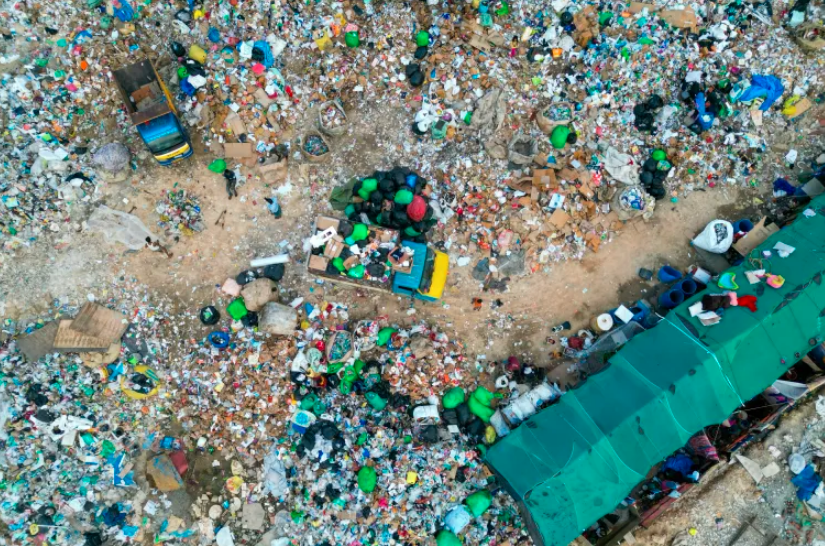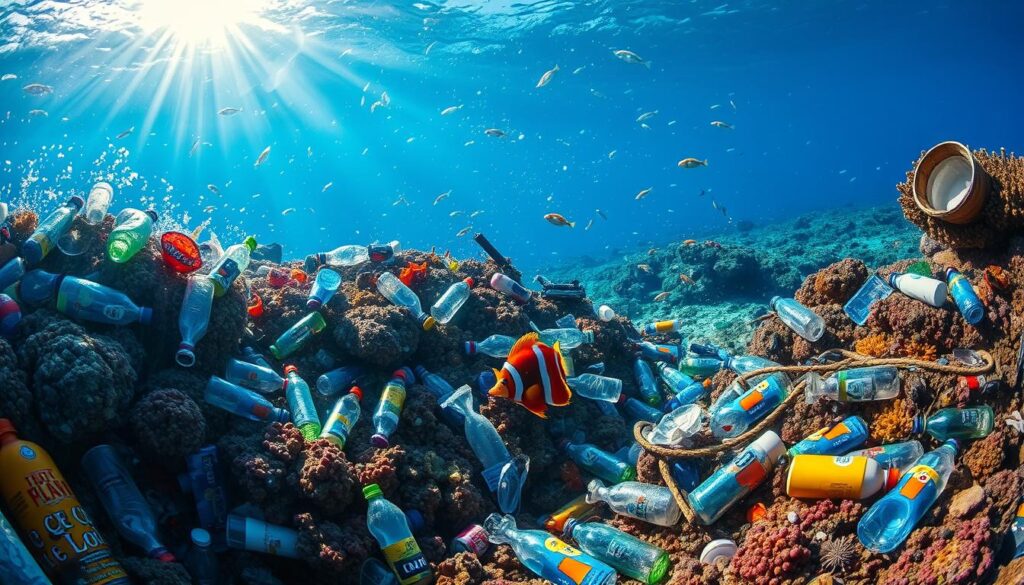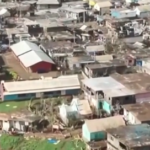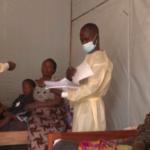Watching the news from South Korea, I felt both hope and urgency. World leaders are tackling the global plastic pollution crisis. Our planet has been drowning in plastic waste for too long.
The talks in South Korea are a key moment in our fight. A successful treaty could mean a cleaner future for our children. I’m cheering for our leaders to make a difference.

The choices made now will affect future generations. As citizens, we must stay informed and support this cause. Together, we can make a world free from plastic pollution.
Understanding the Global Plastic Crisis and Its Environmental Impact
The world is facing a big problem with marine pollution caused by too much plastic waste in our oceans. It’s reported that over 8 million tons of plastic get into the sea every year. This is really bad for our ecosystem health.
Current State of Marine Pollution Worldwide
Plastic pollution is a big problem everywhere. The Great Pacific Garbage Patch, a huge pile of plastic in the Pacific, is as big as Texas. It’s harming marine life by trapping and eating them, which hurts the whole ecosystem health.
Economic Cost of Plastic Pollution
The cost of plastic waste is huge, with a yearly loss of over $13 billion to the global economy. It affects fisheries, tourism, and the cost of cleaning up. The financial damage keeps growing.
Health Implications for Ecosystems and Humans
Plastic waste is harmful in many ways. It can get into the food chain, harming marine life and humans. The long-term effects of this crisis are a big worry for scientists and leaders.

Leaders push for plastic pollution treaty in South Korea Talks
World leaders are meeting in South Korea to tackle the growing problem of plastic pollution. They aim to create an international agreement to fight this environmental crisis. The talks show how important it is for countries to work together to solve this issue.
People from all over are involved in these talks. This includes leaders from different countries, business groups, and groups focused on the environment. They are trying to make a strong treaty that will help protect our environment and make sure countries manage their plastic waste well.

The talks in South Korea are a key moment in the fight against plastic pollution. If they succeed, it could lead to a global effort to reduce plastic waste. This is crucial for our oceans, ecosystems, and communities around the world.
Key Stakeholders and Nations Leading the Treaty Negotiations
The world is facing a big problem with plastic pollution. A group of stakeholders from all over is working together to solve it. This team includes countries, businesses, and groups focused on the environment. Each one is important in figuring out how to handle plastic better.
Role of Developed vs Developing Nations
Rich countries have better waste management and rules to protect the environment. But, poorer countries struggle with less resources and infrastructure. Finding a way to help both is key to success in these talks.
Industry Representatives and Their Positions
Businesses that make plastic have a lot at stake in these talks. Some want to help by doing things on their own, while others want stricter rules. Finding a middle ground is hard, but it’s necessary to protect the environment and keep businesses running.
Environmental Organizations’ Involvement
Groups focused on the environment have been leading the fight against plastic. They help spread the word and push for strong actions. Their work is crucial to make sure the treaty is strong enough to protect our planet.
Proposed Framework for International Plastic Regulation
World leaders are meeting in South Korea to make a big deal about plastic pollution. They want to create a global plan to fight plastic waste and protect our environment.
The plan focuses on production limits and waste management standards for all countries. It aims to cut down on single-use plastics and make sure plastic waste is handled right.
It’s also about money. The plan includes incentives for sustainable practices and fines for those who don’t follow the rules. This way, everyone will stick to the international agreement and follow plastic regulation worldwide.
The plan is a starting point for changing how we deal with plastic globally. Its goal is to encourage sustainable practices and keep our planet safe.
Critical Points of Discussion in South Korea Negotiations
The world is facing a big problem with plastic waste. Talks in South Korea are key to finding a global solution. They will focus on three main areas: setting limits on plastic production, improving waste management, and finding ways to pay for it all.

Production Limits and Controls
Setting production limits and controls for plastics is a top goal. The goal is to stop so much plastic waste from polluting our planet. Experts will discuss if it’s possible to limit how much plastic is made.
Waste Management Standards
Improving waste management standards is also a big topic. They want to make sure plastic waste is handled right. This includes better recycling and ways to dispose of waste without harming the environment.
Financial Mechanisms
Having enough money to support these changes is crucial. The talks will look at how to fund the shift to sustainable practices. This includes helping industries switch to better materials and waste management.
The talks in South Korea are a big moment for the world. They could lead to a new way to fight plastic waste. It’s important for leaders to find a balance between protecting the environment and keeping the economy strong.
Implementing Circular Economy Principles in Plastic Management
The world is facing a big problem with plastic waste. Using circular economy ideas in plastic management is seen as key. This approach wants to change how we make, use, and throw away plastics. It moves us from a “take-make-waste” model to a more green and environmentally-conscious one.
The circular economy focuses on reducing, reusing, and recycling plastics. The treaty aims to change the whole plastic life cycle. It covers design, making, and managing plastic waste efficiently. This change helps the environment and creates new jobs and industries.
The treaty suggests countries use circular economy plans that fit their needs. This might mean better plastic waste management systems. It also encourages using materials that are renewable, biodegradable, and recyclable.
Single-Use Plastics: Phase-Out Strategies and Alternatives
The world is facing a big problem with plastic pollution. We need good plans to stop using single-use plastics. Governments, businesses, and green groups are looking for ways to make things better. They want to find options that are good for the planet and still easy to use.
Sustainable Alternatives to Common Plastic Products
There are many sustainable alternatives coming up. You can find reusable bags and water bottles, and even food packaging and utensils that break down. These new items use materials like paper, bamboo, metal, and plant-based plastics. They are better for the environment and can fit into our daily lives.
Timeline for Global Phase-Out
Getting rid of single-use plastics is hard, but many places are making progress. Some countries have banned or taxed certain plastics. Others aim to stop using specific plastics by 2030. As more countries join in, we’ll see more efforts to switch to sustainable alternatives.
Economic Implications of the Proposed Treaty
World leaders are meeting in South Korea to talk about a big plastic pollution treaty. The economic impact on industries and countries is a big concern. The rules to cut down plastic pollution could change global trade and challenge how businesses work.
Those who support the treaty say it will lead to new jobs and businesses. They point to the growth of new materials and recycling tech. But, others worry about higher costs, lost jobs, and trade barriers, especially for poor countries that depend on plastic.
The talks in South Korea aim to find a middle ground. They want to protect the environment without hurting the economic impact on the plastic industry and the world’s economy. The treaty’s success depends on finding ways to support sustainable practices without causing too much trouble for trade and jobs.
Next Steps and Timeline for Treaty Ratification
The talks on the global plastic pollution treaty are ending in South Korea. Now, we focus on the key steps to ratify the treaty. This treaty aims to create a global rule for managing plastic waste. It could change how we handle plastic waste worldwide.
Getting countries to support the treaty is the next big step. Environmental groups and policymakers must work hard to get enough countries to sign. This will take a few years, as countries deal with their own laws and agree on the treaty’s details.
After the treaty is ratified, the real work starts. Governments, businesses, and groups must work together to make the treaty work. They will need to improve waste management, find new materials, and teach people about the importance of recycling.






1 thought on “Leaders make final push for plastic pollution treaty in South Korea Talks”